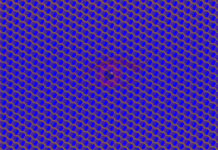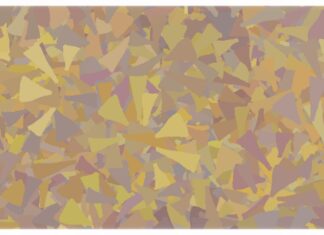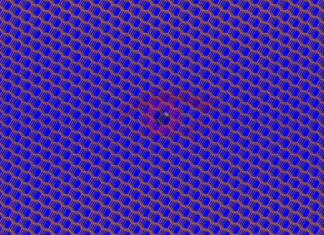GraalVM is a high-performance runtime and compiler that provides a universal virtual machine for executing applications written in various programming languages. It offers a unique and powerful approach to running applications by supporting multiple languages, enabling seamless interoperability, and delivering impressive performance improvements. With its extensive capabilities and versatility, GraalVM has gained significant attention and adoption in the software development community.
GraalVM, developed by Oracle Labs, is designed to address the challenges faced by developers working with multiple programming languages. Traditional virtual machines are typically optimized for a specific language, making it cumbersome to integrate different language runtimes and achieve efficient interoperability. However, GraalVM takes a different approach by providing a polyglot runtime environment that supports popular languages such as Java, JavaScript, Python, Ruby, and more. This capability allows developers to build applications using their preferred language or mix different languages seamlessly within a single codebase.
One of the key features of GraalVM is its just-in-time (JIT) compiler, which translates high-level code into highly optimized machine code at runtime. The GraalVM compiler leverages advanced optimization techniques and adaptive compilation strategies to generate highly efficient native code, resulting in significant performance improvements over traditional interpreters or even other JIT compilers. This performance boost can have a transformative impact on application responsiveness, throughput, and scalability.
GraalVM also introduces a concept called “ahead-of-time” (AOT) compilation, which allows developers to compile their applications into native executables that can be run without the need for an underlying virtual machine. This capability is particularly useful in scenarios where fast startup times and reduced memory footprint are crucial, such as in cloud-native deployments or containerized environments. By eliminating the need for a virtual machine, AOT compilation enables lightweight and efficient application execution, making GraalVM a compelling choice for modern application development.
Another significant advantage of GraalVM is its support for native interoperability between different programming languages. With GraalVM, developers can call functions or use libraries written in one language from another language seamlessly. This capability opens up a wide range of possibilities for building complex applications that leverage the strengths of different languages. For example, developers can write performance-critical components in languages like C or C++ and seamlessly integrate them with higher-level languages like Java or Python. This interoperability unlocks new levels of flexibility and efficiency in software development.
GraalVM also provides a comprehensive set of tools and frameworks to aid developers in building, testing, and optimizing applications. It offers a suite of debugging and profiling tools that help identify performance bottlenecks, memory leaks, or other issues during application development and troubleshooting. Additionally, GraalVM integrates with popular development frameworks and build tools, making it easy for developers to incorporate GraalVM into their existing workflows. The availability of these tools and frameworks simplifies the development process and empowers developers to harness the full potential of GraalVM in their projects.
Furthermore, GraalVM extends its capabilities beyond standalone applications by providing support for serverless computing and microservices architectures. With GraalVM, developers can create lightweight, fast-booting serverless functions or microservices that can be deployed and scaled efficiently in cloud environments. The combination of GraalVM’s AOT compilation and its ability to execute multiple languages makes it an ideal choice for serverless workloads, where responsiveness, scalability, and resource efficiency are paramount.
GraalVM also supports the concept of “graalification,” which involves optimizing existing code and libraries to take full advantage of GraalVM’s performance optimizations. GraalVM’s graalification process can significantly enhance the performance of applications, especially when using libraries or frameworks that are compatible with GraalVM. This capability allows developers to optimize their existing codebase without having to rewrite the entire application, making it easier to migrate existing applications to GraalVM and reap the benefits of its performance improvements.
In summary, GraalVM is a powerful and versatile runtime and compiler that offers a multitude of benefits to developers. With its polyglot support, JIT and AOT compilation capabilities, native interoperability, comprehensive set of tools, and compatibility with modern software architectures, GraalVM empowers developers to build high-performance applications that seamlessly integrate multiple languages, deliver exceptional responsiveness, and optimize resource utilization. As the software development landscape continues to evolve, GraalVM is poised to play a pivotal role in enabling developers to push the boundaries of what is possible in multi-language application development and execution.
Here are five key features of GraalVM:
Polyglot Runtime:
GraalVM supports multiple programming languages, including Java, JavaScript, Python, Ruby, R, and more. It allows developers to write applications in their preferred language or mix different languages within the same codebase, promoting language interoperability and reducing the complexity of multi-language projects.
Just-in-Time (JIT) Compilation:
GraalVM incorporates an advanced JIT compiler that dynamically translates high-level code into highly optimized machine code at runtime. This compilation strategy improves application performance by optimizing execution paths, eliminating redundant operations, and enabling adaptive optimizations based on runtime profiling.
Ahead-of-Time (AOT) Compilation:
In addition to JIT compilation, GraalVM supports AOT compilation, which enables developers to compile their applications into standalone native executables. AOT compilation eliminates the need for a runtime environment, resulting in faster startup times, reduced memory footprint, and improved overall performance.
Native Interoperability:
GraalVM facilitates seamless interoperability between different programming languages. It allows developers to call functions and use libraries written in one language from another language, enabling the integration of components written in different languages within a single application. This feature promotes code reuse, enhances developer productivity, and leverages the strengths of different languages.
Tooling and Frameworks:
GraalVM provides a comprehensive set of tools and frameworks to support developers throughout the application development lifecycle. It offers debugging and profiling tools that aid in identifying performance bottlenecks and optimizing application code. GraalVM also integrates with popular development frameworks and build tools, simplifying the adoption and integration of GraalVM into existing development workflows.
These features collectively make GraalVM a powerful and flexible runtime environment, offering performance improvements, language interoperability, efficient resource utilization, and a rich ecosystem of tools and frameworks. By leveraging these features, developers can build high-performance applications that span multiple languages and deliver exceptional user experiences.
In today’s rapidly evolving software development landscape, developers face numerous challenges when it comes to building high-performance and efficient applications. They often need to leverage multiple programming languages, optimize resource utilization, and enhance application responsiveness. To address these demands, developers can turn to GraalVM, a cutting-edge runtime and compiler that empowers them with unparalleled versatility and performance.
GraalVM, developed by Oracle Labs, stands out as a revolutionary technology that offers a unique approach to application execution. While traditional runtimes are limited to a specific programming language or runtime environment, GraalVM breaks free from these constraints. It provides a polyglot runtime that supports multiple languages, enabling developers to leverage the best features of each language within a single application. This level of language interoperability is a game-changer, allowing developers to choose the most suitable language for each component of their application and seamlessly integrate them.
One of the standout aspects of GraalVM is its powerful compilation capabilities. With its Just-in-Time (JIT) compilation, GraalVM dynamically translates high-level code into optimized machine code at runtime. This process boosts the performance of the application by eliminating redundant operations, optimizing execution paths, and enabling adaptive optimizations based on runtime profiling. The JIT compilation ensures that the application performs at its best, delivering exceptional speed and responsiveness.
Additionally, GraalVM offers Ahead-of-Time (AOT) compilation, which takes performance optimization to the next level. With AOT compilation, developers can compile their applications into standalone native executables that can run without the need for a runtime environment. This approach not only eliminates the startup overhead typically associated with runtime environments but also significantly reduces the memory footprint. The resulting native executables offer faster startup times, reduced resource consumption, and improved overall performance.
Beyond its compilation capabilities, GraalVM also excels in facilitating native interoperability. It allows developers to seamlessly integrate components written in different languages within a single application. For example, developers can call functions and use libraries written in one language from another language, enabling them to leverage the strengths of each language and promote code reuse. This level of interoperability opens up new possibilities for developers to build complex applications that combine the best of various programming languages.
GraalVM’s commitment to developer productivity is evident in its comprehensive set of tools and frameworks. It provides a rich ecosystem of development tools that aid in the debugging, profiling, and optimization of applications. Developers can easily identify performance bottlenecks, analyze application behavior, and fine-tune their code for optimal performance. Furthermore, GraalVM integrates seamlessly with popular development frameworks and build tools, making it effortless for developers to adopt and integrate GraalVM into their existing development workflows.
Another noteworthy aspect of GraalVM is its compatibility with modern software architectures. It supports containerization technologies like Docker, enabling developers to package their applications along with GraalVM and dependencies into lightweight and portable containers. This compatibility facilitates the deployment of GraalVM-powered applications across various cloud platforms and environments, providing flexibility and scalability.
Furthermore, GraalVM fosters an active and vibrant community that continuously contributes to its growth and improvement. The community-driven nature of GraalVM ensures that developers have access to a wealth of resources, documentation, and community support. This collaborative environment encourages knowledge sharing, innovation, and the development of new tools and libraries that further enhance the capabilities of GraalVM.
In conclusion, GraalVM is a groundbreaking technology that empowers developers with versatility and performance. Its polyglot runtime, powerful compilation capabilities, native interoperability, comprehensive tooling, compatibility with modern software architectures, and vibrant community make it a compelling choice for developers looking to build high-performance and efficient applications. By harnessing the power of GraalVM, developers can unleash their creativity, overcome language barriers, and create innovative software solutions that push the boundaries of what’s possible.

















